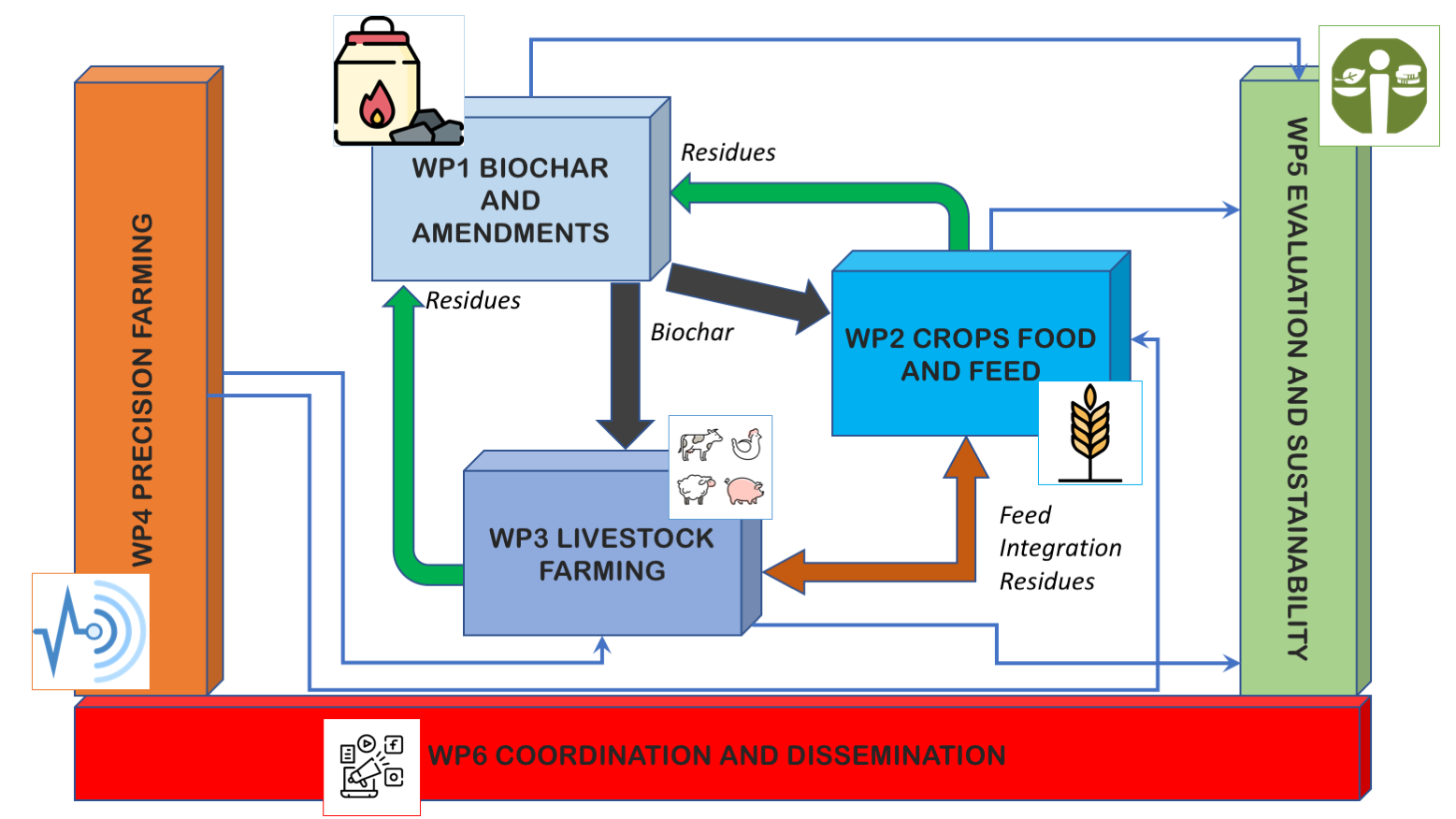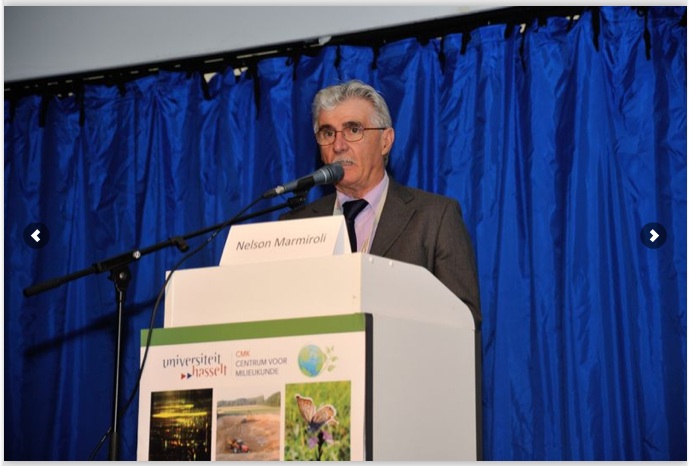Connecting sustainable agroecosystems and farming with circular bioeconomy and new technologies

Source: Nelson Marmiroli, CINSA
The ConnectFarms project will develop approaches to increase in a sustainable way integrated crop-livestock production while benefiting soil resilience to stress and climate change. This will include an extensive toolbox for farmers and stakeholders addressing crop-livestock integration, precise farming, organic amendments, re-use of residues in circular economy and sustainability improvements of farming practices. A set of recommendations for sustainable strategies leading to environmentally sound production in compliance with the Farm to Fork strategy will be given. Emphasis will be given to new approaches based on science and nature-based solutions to manipulate crops, livestock, soil and plant microbial communities to maximize positive ecological interactions and enhance ecosystem services.
The ConnectFarms concept is highly interdisciplinary and joins together expertise from many research fields, to achieve an integration of crop, livestock and ICT to obtain ecosystem services in agreement with the needs of sustainable agriculture. Partners will work in experimental sites in all partner countries – Bulgaria, Estonia, Italy, Lithuania, Poland, Spain and Turkey. Focused aspects of the project will concern: agriculture and soil fertility – crop and livestock – soil improvers, amendments and biochar for soil health – welfare and sustainability for animals – precision farming – life cycle and ecosystem services assessment - stakeholder involvement. The ambition of the project is to contribute to innovative strategic food systems by targeting enhanced agricultural technology, food processing and preservation innovation, environmental issues, and ultimately human health. ConnectFarms explores the interaction between arable crops, e.g. barley and pulses, with farm animals of high relevance, e.g. sheep and chicken. The connection is maintained through triangulation - crop becomes feed for animals, residues become amendments, amendments feed and boost crops and animals. The sustainable use of biochar is our keystone to improve both plant and animal farming in a circular economy approach.
The presenting consortium includes 10 partners: one Interuniversity Consortium, 5 universities, and 4 research institutions, based in 7 countries. The project is highly interdisciplinary as it includes a) ecological and agronomic studies b) soil and crop management to improve diversity and functionality and c) studies of ecosystem services such as C sequestration, nutrient cycling, and pest control. Connecting the work of the different partners by comparing soil amendment methods, energy requirements, management practices, yield records and the experiences at the different locations in Europe will be an important priority to successfully carry out the project.

Source: Nelson Marmiroli, CINSA
Prof. Nelson Marmiroli
Consorzio Interuniversitario Nazionale
per le Scienze Ambientali, ITALY
Email: cinsa@unipr.it
Prof. Paolo Pesaresi
University of Milano, ITALY
Dr. Stefan Shilev
Agricultural University, BULGARIA
Dr. Virmantas Povilaitis
Lithuanian Research Centre for Agriculture and Forestry, LITHUANIA
Dr. Monica Amato
Consiglio per la Ricerca in Agricoltura e l'Analisi dell'Economia Agraria (CREA), ITALY
Dr. Stefania Tomasiello
University of Tartu, ESTONIA
Dr. Rocio Millán Gómez
CIEMAT, SPAIN
Dr. Aser Garcia
NEIKER, SPAIN
Prof. Wiesław Szulc
Warsaw University of Life Sciences, POLAND
Prof. Ayhan Gökçe
Niğde Ömer Halisdemir University, TURKEY